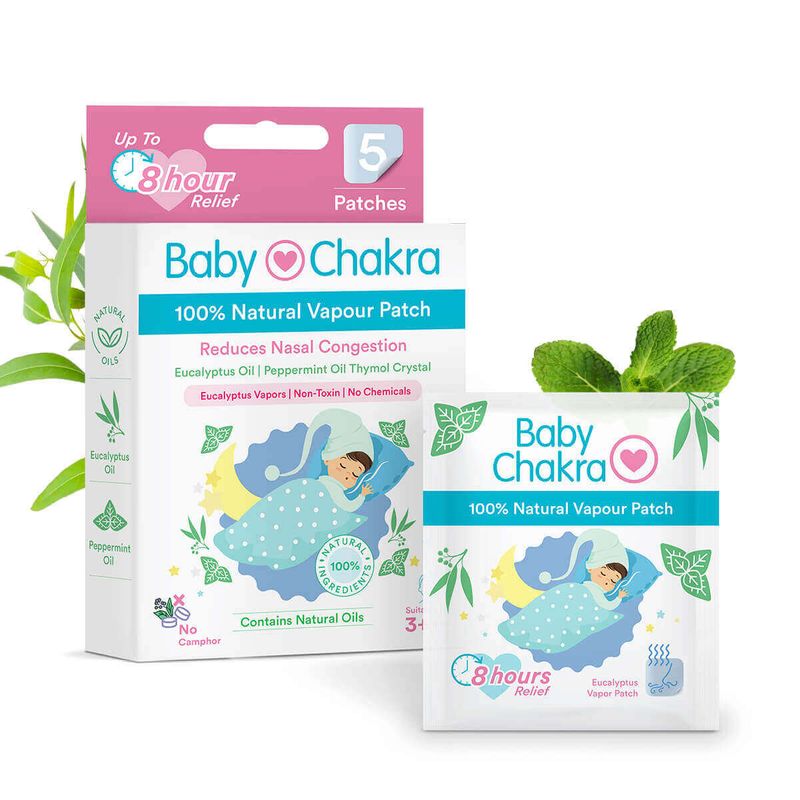
Should You Worry About Your Baby’s Runny Nose?
5 Jul 2022 | 3 min Read
Reema Shah
Author | 740 Articles
Your baby can have a runny nose for a number of reasons including the common cold, flu or seasonal allergies. A runny nose can be easily treated with home remedies and natural vapour patches and is not a cause for concern.
But some might signal a serious condition, especially if the runny nose is accompanied by fever. Read further to find out when to worry and how to cure a baby’s runny nose.
Why Does Your Baby Have A Runny Nose?
According to the American Academy of Pediatrics, a baby’s runny nose sometimes can be due to teething especially when the tooth erupts. Your baby gets a runny nose as a result of the body’s inflammatory response to the disruption of the gums.
So, if you notice that your baby is irritable, fussy, and drools more than usual he or she could possibly just have a cut tooth. This is usually also accompanied with a loss of appetite and a runny nose along with a low-grade fever. Monitor your baby’s body temperature and as long as the fever doesn’t increase, there’s no reason to worry.

Is a Runny Nose with a Fever Normal?
A baby over two months old may commonly have a slight fever with a cold which means a temperature over 100.4 degrees. If your baby has a runny nose and a fever, it’s normal for a cold. However, the fever should remain low and not last more than a day or two.
When Should You Worry About Your Baby’s Runny Nose?
Community Expert, Dr Pooja Marathe says, “When the nasal passage is creating an obstruction in breathing, it could be the time to worry”. Keep an eye on the colour and texture of the mucus of your baby. If your baby’s nose is running clear but gradually turns from white to yellow or green, it could be a sign of a viral infection. You can give medication to keep the baby’s fever down and even use Natural Vapour Patches to provide relief from congestion.
Community Expert Dr Pooja Marathe recommends using a sniffing pod made up of clove and ginger. Their fumes help to open the nasal passage and free the congestion.
However, if your baby’s running nose is accompanied by a fever, cough, raspy breathing and pulling on the ear, you’ll need to contact your doctor. The doctor may swab your baby’s throat to check for a bacterial infection and check the ears for redness. They will then prescribe medications accordingly if needed.
Watch Out for Runny Nose and Breathing Issues
Community Expert Dr Pooja Marathe says “If a baby’s runny nose lasts for more than five days there could be some serious infection, which can be rectified.”
Keep an eye on your baby’s breath while grabbing tissues and easing the runny nose symptoms. If you notice any signs of congestion along with a runny nose, take a look at your child’s chest while they’re breathing and coughing to check for any respiratory distress.
Most of the time runny noses in babies are totally normal, however, if you have any concerns about your child’s breathing, or if any of the symptoms worsen, consult with your doctor.
Image source: Wonderbaby.org
A


Suggestions offered by doctors on BabyChakra are of advisory nature i.e., for educational and informational purposes only. Content posted on, created for, or compiled by BabyChakra is not intended or designed to replace your doctor's independent judgment about any symptom, condition, or the appropriateness or risks of a procedure or treatment for a given person.

